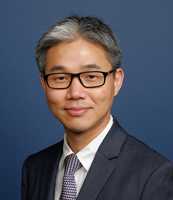
05 Feb How Functional Are Frail Adults After Aortic Valve Replacement?
MedicalResearch.com Interview with:
Dae Hyun Kim, MD, MPH, ScD
Assistant Professor of Medicine, Harvard Medical School
Hinda and Arthur Marcus Institute for Aging Research, Hebrew SeniorLife
Division of Pharmacoepidemiology and Pharmacoeconomics, Department of Medicine, Brigham and Women’s Hospital
Division of Gerontology, Department of Medicine,
Beth Israel Deaconess Medical Center
MedicalResearch.com: What is the background for this study? What are the main findings?
Response: The number of older adults undergoing aortic valve replacement is increasing. Since these patients are at high risk for complications and functional decline due to preexisting multimorbidity and frailty, the latest guideline (Otto et al. J Am Coll Cardiol 2017;69:1313–46) emphasizes shared decision-making based on patient-centered outcomes. Despite this recommendation, we witness many decision-making processes are cardio-centric—mainly informed by expected benefit in terms of cardiac-specific measures. Many patients are not adequately informed about what their daily life would be like after the procedure.
In this single-center prospective cohort study, we examined functional status trajectories via assessments of global functional status at 1, 3, 6, 9, and 12 months in 246 patients who underwent transcatheter and surgical aortic valve replacement. We identified 5 clinically meaningful functional trajectories, ranging from high baseline function-early complete recovery to low baseline function-large and persistent decline. We were able to predict most likely trajectory as well as best possible and worse possible trajectories using the preoperative frailty index. Delirium and postoperative complications were also strongly associated with undesirable functional trajectories.
MedicalResearch.com: What should readers take away from your report?
Response: Our study highlights the heterogeneity of outcomes in medically complex older adults (i.e., not every patient benefits, and the amount of benefit differs by patient even from a well-established beneficial treatment). The benefit of a treatment is often limited to a disease or an organ system, and may not lead to a proportional improvement in global function in frail older patients who have accumulated problems in multiple organ systems (i.e., fixing one of several problems is unlikely to fix the person). Shared decision-making conversation should consider the balance between disease-specific benefits and global person-centric benefit.
MedicalResearch.com: What recommendations do you have for future research as a result of this work?
Response: In future studies evaluating a treatment in medically complex older adults, it is important to evaluate the benefit in terms of the target condition (disease-specific benefit) as well as the overall functioning of the older person (person-centric benefit).
No disclosures
Citation:
[wysija_form id=”3″]
[last-modified]
The information on MedicalResearch.com is provided for educational purposes only, and is in no way intended to diagnose, cure, or treat any medical or other condition. Always seek the advice of your physician or other qualified health and ask your doctor any questions you may have regarding a medical condition. In addition to all other limitations and disclaimers in this agreement, service provider and its third party providers disclaim any liability or loss in connection with the content provided on this website.
Last Updated on February 5, 2019 by Marie Benz MD FAAD
